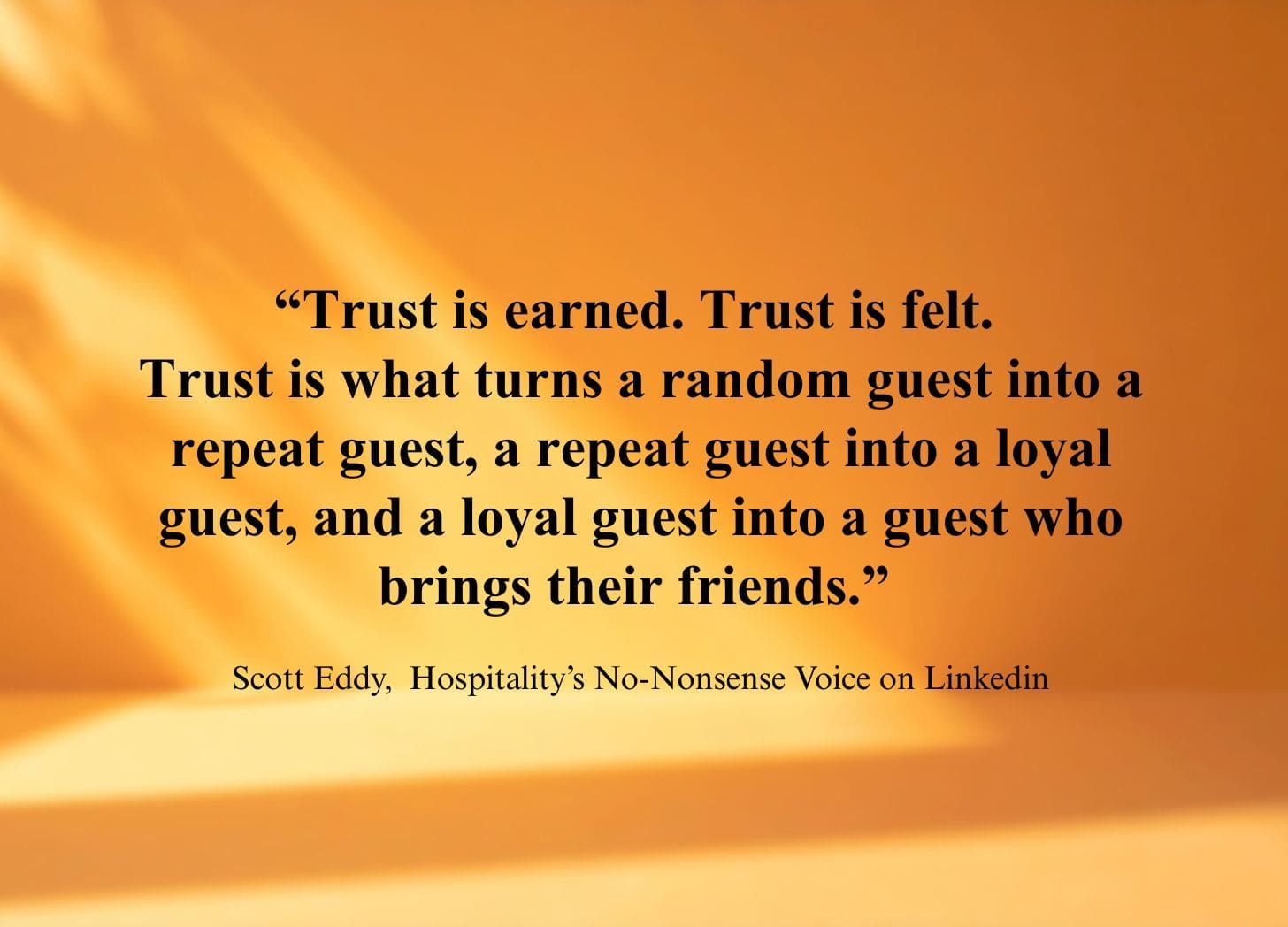Your Bookings Aren’t Broken. They’re Quietly Leaking.
Where confidence breaks and operators rarely see it coming
Bookings Don’t Collapse. They Quietly Drift.
There is no alert, no dashboard warning, and no message telling you something just changed.
It shows up as fewer confirmations and longer gaps between bookings. Quiet enough to miss. Loud enough to feel.
Your rates still look competitive.
Your photos still feel current.
Your reviews still mostly read well.
And yet, that quiet voice in your gut tells you something shifted before the numbers caught up.
This isn’t travel disappearing.
This is guests needing more calm before they feel ready to commit.
What Has Shifted in Guest Behavior
Guests are not researching less.
They are researching wider, across more surfaces.
They move between your website, Google Maps, Instagram, booking platforms, and travel forums before making a decision.
They aren’t looking for perfection.
They’re just trying to feel safe choosing you.
Years of flexible cancellations trained guests to wait.
Waiting became normal.
That habit never disappeared, it simply blended into how they make decisions now.
Choices feel endless.
Scrolling feels frictionless.
Doubt feels easy.
This is not weak demand.
This is slower trust.
I’m building something for operators who want fewer guests that cost more, and more guests that stay, return, and send friends. It’s a small founder group. I’m keeping it intentionally tight.
Where Bookings Quietly Break
These aren’t marketing problems.
These are operational moments that gently block confidence.
Policies That Feel Defensive
Many cancellation policies read like legal documents instead of clarity.
Guests don’t argue with them.
They quietly leave.
AI prompt to use:
You are a cautious guest preparing to pay.
Rewrite this cancellation policy in calm, plain language.
Do not remove rules.
Do not add guarantees.
Keep the length the same or shorter.
Policy: [paste text]
Your Website Falling Behind Your Listings
Guests spot small differences.
They assume your website is outdated.
They book where information feels most current.
AI prompt to use:
You are auditing property descriptions for accuracy.
Compare the descriptions below.
List only factual conflicts or mismatches.
Do not suggest marketing improvements.
Airbnb: [paste]
Website: [paste]
Booking platform: [paste]
Reviews That Sit Too Long
Unanswered reviews quietly tell future guests that attention may be inconsistent.
Silence feels like absence.
Selective replies feel like avoidance.
AI prompt to use:
You are a hotel reputation analyst.
Read the reviews below.
Identify the top three hesitation triggers.
Base findings only on the text provided.
Reviews: [paste]
Amenities That Drift From Reality
When a listing promises a workspace and a guest finds a wobbling desk, they rarely complain.
They simply do not return.
They often share what happened somewhere else.
These are not storytelling gaps.
These are trust gaps.
What This Quiet Shift Does to Revenue
When hesitation rises, direct bookings feel it first.
Guests move toward what feels safest.
Most of the time, that is the OTA.
That shift creates quiet pressure:
Higher commission costs
Less control over guest relationships
More dependence on platforms you do not own
OTA commissions often sit between 15–20%.
Direct bookings average closer to 2–3%.
You don’t feel this as a crash.
You feel it as thinner margins and harder wins.
This isn’t a branding issue.
This is money quietly slipping out in places you never meant to leave open.
He wasn’t talking about marketing.
He was talking about behavior.
Guests feel operations long before they believe promises.
That is where trust forms now.
Where AI Fits Without the Noise
AI isn’t your strategy.
It’s just a second set of kind eyes that notice what you’ve been too busy to catch.
You don’t have time to read every review.
You can’t constantly compare listings.
You can’t always see where small habits have formed.
AI can.
It helps you notice:
Patterns forming quietly
Friction that has become normal
Inconsistencies that feel small to you but confusing to guests
It doesn’t run your business.
It helps you see.
One Quiet Fix for This Week
You don’t need to rebuild everything.
Do one small thing.
Ask AI to scan your house rules and cancellation terms for language that quietly creates stress.
AI prompt to use:
You are a first-time guest about to book.
Review these house rules and cancellation terms.
Highlight any language that could create stress, fear, or hesitation.
Do not rewrite.
Text: [paste text]
This isn’t a full overhaul.
It’s a small pressure release.
The Operator Mirror Moment
Open an incognito window.
Search your own property.
Read your listing as though you’ve never seen it before.
Notice where you slow down.
Notice what makes you hesitate.
Notice what feels unclear.
You aren’t imagining this.
You aren’t behind.
You’re not overthinking this.
You’re just noticing what others haven’t named yet.
Why This Matters
This matters because you are already feeling the shift, even when the dashboards still look calm.
This matters because hesitation shows up first in your margins, not your metrics.
This matters because clarity now lives at the center of hospitality, not on the edges.
When things feel calm for your guest, your work starts to feel lighter too.
The calmest properties quietly earn the most trust.






